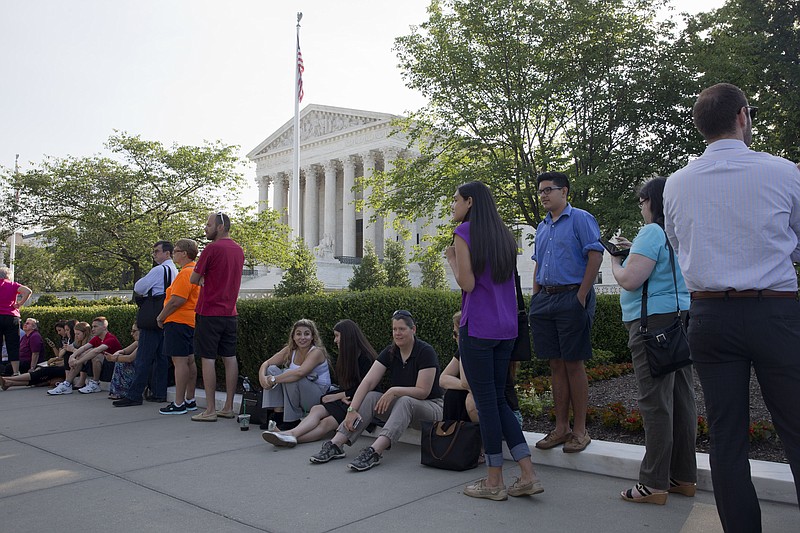Read more
County Commission's controversial discretionary funds can't be spent on schools, attorney says
The unpopular Affordable Care Act lost its last chance to be remade into a truly affordable and workable health care law for at least two years with the Supreme Court's Thursday ruling that upheld the doling out of government money to help pay for health plans even in states that did not set up their own insurance exchanges.
Such an opportunity might next come if a Republican is elected president in 2016 and is able to work with a conservative Congress to overturn the original law and create a system that would keep in place measures most Americans have long supported and get rid of the bureaucratic, expensive, often discriminatory parts that have made Obamacare a nightmare.
On the bright side, the Court's decision gives the myriad GOP candidates a solid issue on which to run. Only this month, after all, support for the law tied an all-time low, with 54 percent of the country opposing it and only 39 percent favoring it.
Those figures may be fueled by revelations from some insurance companies that rates for some Obamacare policies will soar by more than 60 percent for 2016.
Chief Justice John Roberts, in authoring the opinion in King v. Burwell, went against his penchant for narrow rulings. The health care law, written by Democrats, used clear wording that limited tax credits, or subsidies, to health care exchanges "established by the state."
Thus, a narrow ruling on the merits of the argument would have eliminated the subsidies, but the chief justice - who initially saved the law in 2012 by declaring it was based on a tax even though President Obama had specifically said it wasn't - went another way.
Roberts, choosing to interpret what he thought Democrats meant and not what they said, ruled that since the Court believed that "Congress passed the Affordable Act to improve health insurance markets, not to destroy them," it would act on "what we see as Congress's plan."
Justice Antonin Scalia, in dissenting, noted correctly how the Court, instead of interpreting the law, chose to be a tightrope net for the ACA.
"Under all the usual rules of interpretation, in short, the Government should lose this case," he said. "But normal rules of interpretation seem always to yield to the overriding principle of the present Court: The Affordable Care Act must be saved. The cases will publish forever the discouraging truth that the Supreme Court of the United States favors some laws over others, and is prepared to do whatever it takes to uphold and assist its favorites."
Though the ruling saves thousands of people from losing the health insurance they were forced to purchase (or pay a fine) under the law, it unfortunately continues the tide of higher premiums, more restrictions and less coverage for everybody else.
